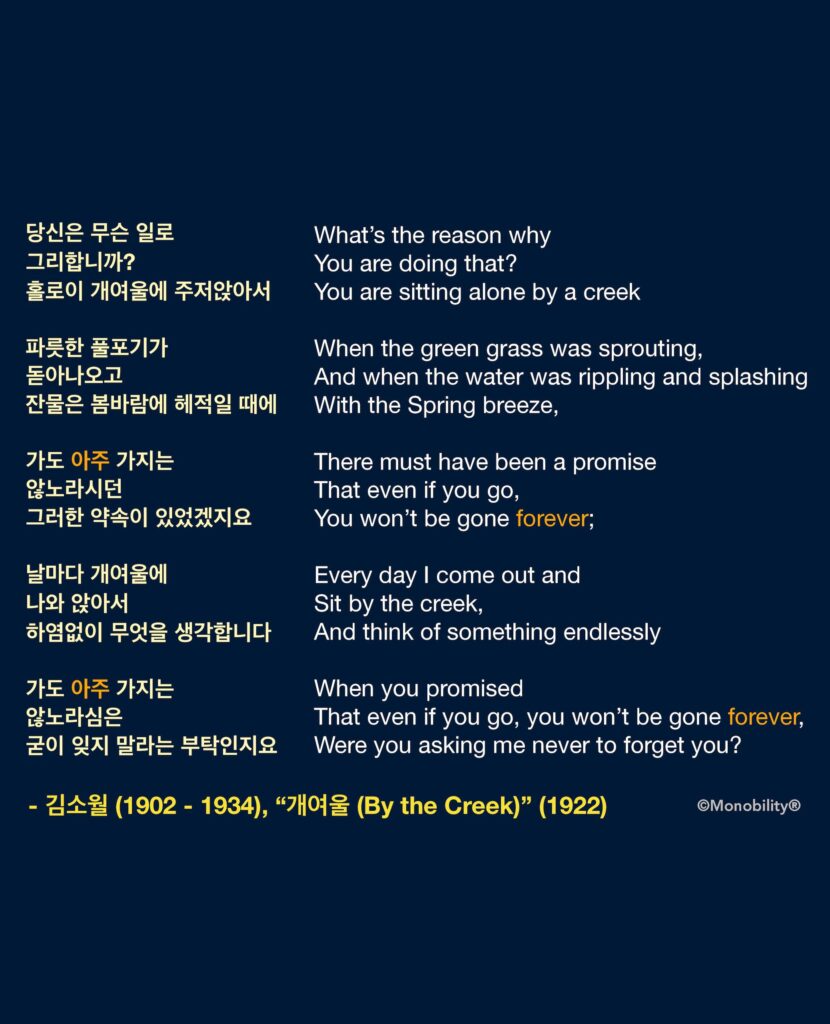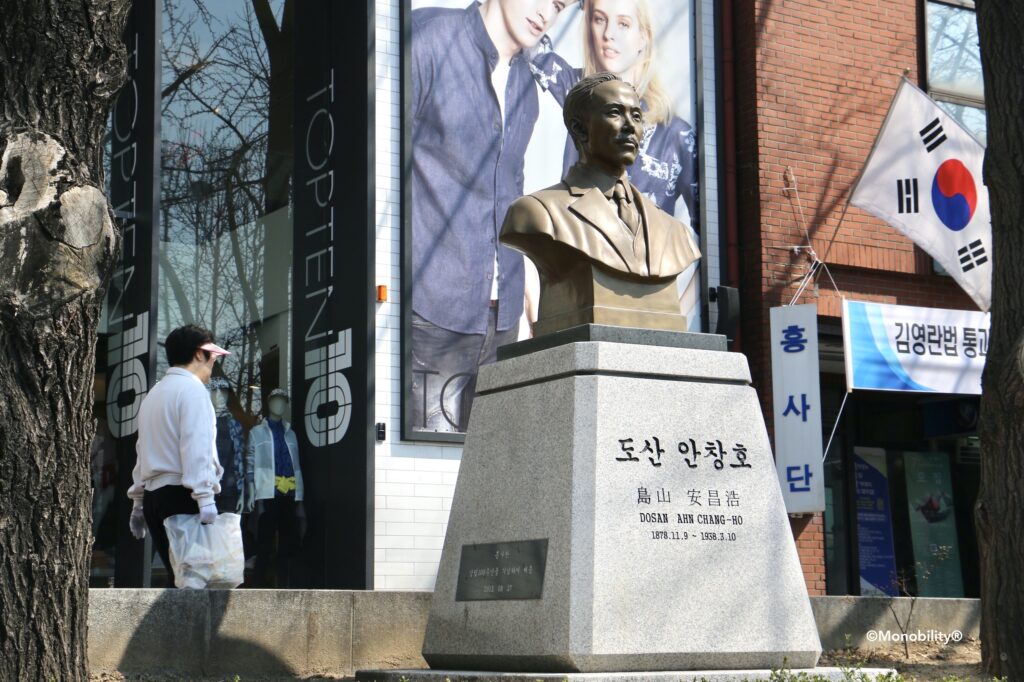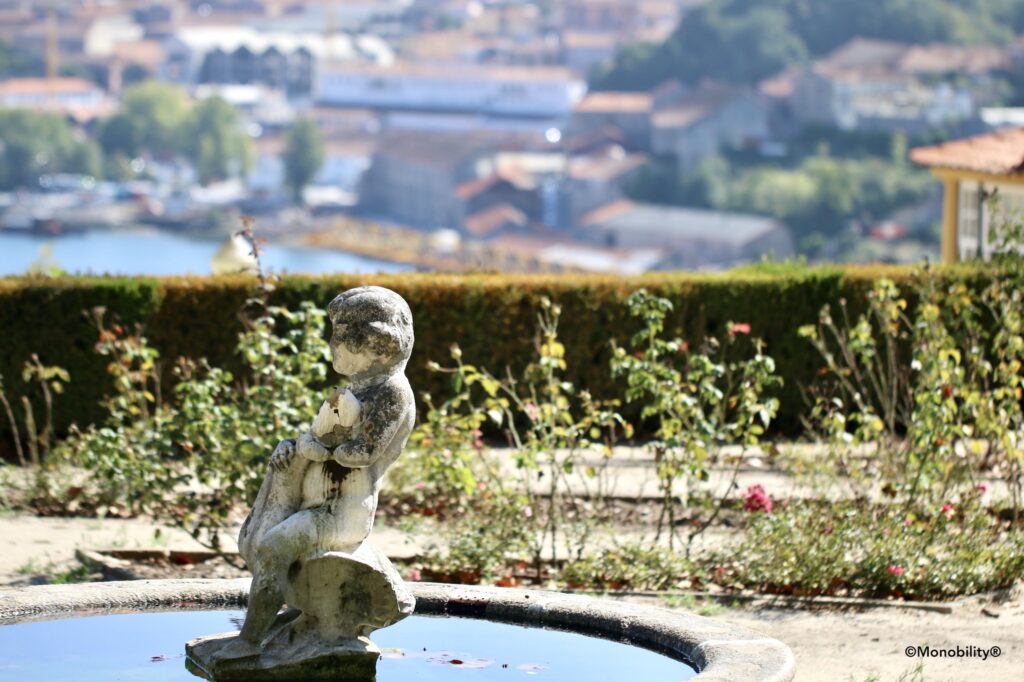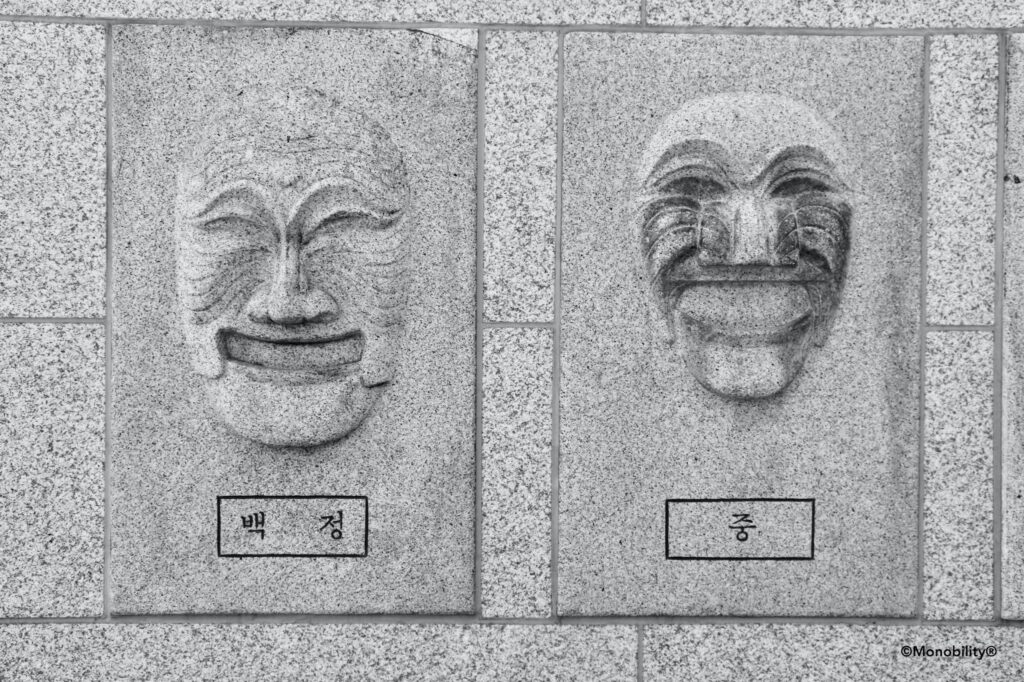About 80 years ago, none of you would have been able to learn Korean and 한글, even if you had traveled to, and lived in Korea. Together with Koreans, you would have been forced to learn, speak, and even sing in the language of Korea’s neighbor country instead, who had invaded and occupied Korea 30 years before. The Korean language was “prohibited,” especially during the World War II (the Pacific War). Despite a certain cultural nuance in the extent of harshness, the social situation of Koreans at that time bears a marked resemblance to France occupied by Germany (1940 – 1945), divided into Vichy government collaborating with Germany and the French Resistance, domestic and overseas. And we know that there were many other similar cases all over the world.
“모던보이 (Modern Boy, 2008)” allows us to take a time machine and catch a glimpse of those times. In the middle of the movie, one of the most exquisitely lyric poems “개여울 (By the Creek)” by Koreans’ all time favorite poet 김소월 (1902 – 1934) is sung on stage in Japanese, not in Korean, during the dark era. Please watch 김혜수 sing it in Korean, reading my translation of the poem attached below.

At the very last scene of this painfully beautiful movie, the main character “modern boy” suggests that his lover sing in Korean and make a debut album, “just in case” Korea becomes a free country. This movie would touch the heart of all Koreans and learners of the Korean language like you.
In the poem, 아주 is an adverb often translated as “very, very much” in English. Spoken with the verbs of moving, such as 가다, 오다, 이사하다, etc., “아주” means “indefinitely,” “completely”, or “forever,” meaning “not returning/moving back.” In this sense, it is similar to another adverb 아예.
Today, on this day for commemorating the March 1st Korean Independence Movement in 1919 (3.1절), we the lovers of Korean and 한글 can take a minute to think about the spirit of those brave people who sacrificed their life to stand up against tyranny and injustice a century ago. And let’s not take anything for granted. All of us may remember that even a language is not given free, simply by birth or by family, just as freedom is never free.
As the last stanza of the poem says, the spirits are asking us never to forget.
한 나라가 잘 되고 못 되는 열쇠는 그 나라의 국어를 얼마나 사랑하느냐에 있다.
The key to a nation’s success is how much its people love their language.
주시경 (Korean linguist, 1876 – 1914)
Update – Feb. 28, 2022
Currently Ukraine is suffering gravely from Russia’s unprovoked invasion that breaks the international rule of law and peace in Europe. The brave people of Ukraine, including hundreds and thousands of civilians, have been fighting fiercely against this barbaric aggression by their bullying neighbor for the last five days. Having experienced a similar situation in Asia a century ago, most Koreans are heartbroken, bewildered by this kind of unjust war still happening in the 21st century, and feel immense compassion for the striving Ukrainians. History says that many countries of the world have had similar invasion from neighbors and eventually survived, with the help of a few other righteous countries from afar. As fellow human beings living on the same planet, let’s act together and give full support for Ukraine’s courageous fight to defend their nation and freedom in the world. Stand with Ukraine!
Check out our Facebook for much more:



